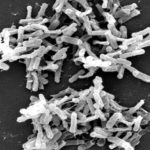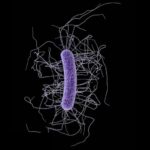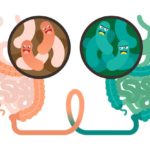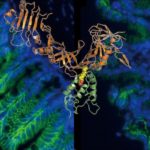A new approach to C. diff? Targeting the inflammation, not the bacteria
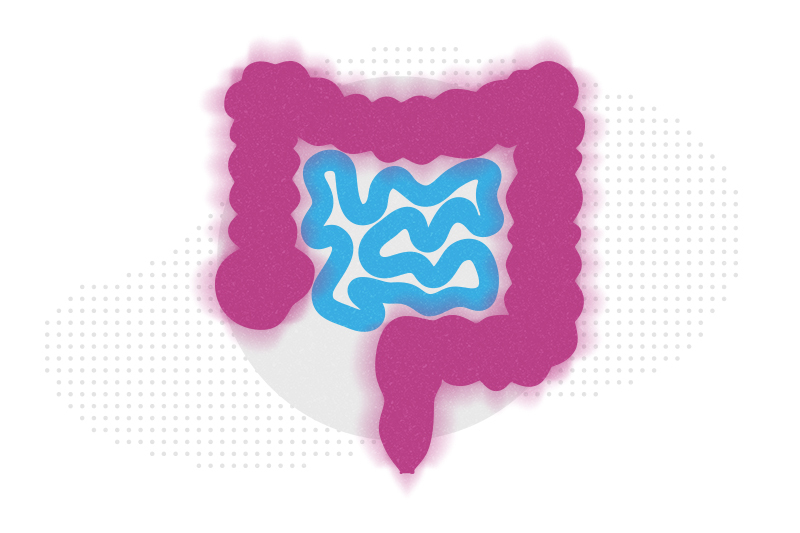
Clostridium difficile (C. diff) intestinal infections can cause severe, debilitating diarrhea in patients who are hospitalized or on immunosuppressive therapies. The infections can be very hard to eradicate, roaring back when patients try to taper their antibiotics. Many people wind up on antibiotics for months and can become resistant to three or more of them.
“Often being on antibiotics isn’t sufficient,” notes Meenakshi Rao, MD, PhD, an attending physician in Gastroenterology, Hepatology and Nutrition at Boston Children’s Hospital. “The infection can catalyze severe, runaway inflammation, especially in patients with inflammatory bowel disease.”
Drugs that block the inflammation triggered by C. diff’s toxin reduced intestinal tissue damage. Surprisingly, the drugs even reduced the burden of C. diff bacteria in the intestine.
This inflammation, in turn, promotes C. diff colonization of intestinal tissue. And antibiotics themselves could be part of the problem. “Once we attack C. diff with antibiotics, it disrupts the gut microbiome,” says Min Dong, PhD, a researcher in the Department of Urology whose lab studies bacterial toxins and how to combat them. “That creates an opportunity for severe, recurring infection, and it becomes a vicious cycle.”
A new and promising approach — which Dong, Rao, and their colleagues describe in the journal Nature — focuses on curbing intestinal inflammation rather than fighting the bacteria directly. Most exciting, it could employ drugs that are already in use for other indications. Based on success in mice with a hypervirulent strain of C. diff, Rao hopes to develop a clinical trial to test these agents.
Single-cell sleuthing
Dong was long aware that C. diff produces an extremely potent toxin — toxin B — but not how it causes colonic inflammation. Using single-cell RNA sequencing data and other techniques, he and his lab members worked out the mechanism, showing that toxin B binds to specific receptors (FZD1/2/7 and CSPG4). They further showed that two key cell types in gut tissues — sensory neurons and pericytes, respectively — sport these receptors at especially high levels.
“A few years ago, we wouldn’t have been able to find this out,” says Dong. “Now we can do so with single-cell technologies.”
Rao’s expertise in the complex neurobiology of the GI tract was critical. She and Dong found that in response to the toxin, the sensory neurons secrete the neuropeptides substance P and calcitonin gene-related peptide (CGRP), while the pericytes, which surround blood vessels, produce pro-inflammatory cytokines. In a mouse model, this drove intense neurogenic inflammation and tissue damage —the same kind of damage that occurs in patients.
“It’s a very strong acute inflammatory response that causes vessel dilation and a massive release of immune cells, cytokines, and inflammatory mediators that go into tissues,” says Dong. “Normally this is a protective response, but it’s overexaggerated, disrupting not just the bacteria but also host cells.”
Repurposing drugs for nausea and migraine
FDA-approved drugs already exist to block the triggering neuropeptides. Aprepitant, used for nausea and vomiting, blocks substance P signaling. Small molecules related to olcegepant or monoclonal antibodies such as fremanezumab, used for migraines, inhibit CGRP signaling.
In the mouse model, these drugs reduced inflammation and tissue damage. Somewhat surprisingly, they even reduced the burden of C. diff bacteria in the animals’ intestines.
“Recent work from others suggests that damage to intestinal cells can induce the release of nutrients that benefit C. diff,” says Dong. “The immune response disrupts the microbiome, which promotes C. diff growth. Once we tune down this host response, C. diff is less able to survive.”
Rao hopes to collaborate with her gastroenterology colleagues to develop a clinical trial of one or more of the drugs. They would likely start in patients with antibiotic-resistant C. diff.
“We could start by using these drugs in conjunction with antibiotics, as an adjunctive therapy,” she suggests. “We know these medications are safe.”
Rao is also an affiliate faculty member of the F.M. Kirby Neurobiology Center at Boston Children’s. John Manion, PhD, in the Dong lab, Melissa Musser, MD, PhD, and Amy Shepherd, PhD, in the Rao lab, and Gavin Kuziel in the lab of Seth Rakoff-Nahoum, PhD, made key contributions to this work. For more, read this News & Views article, see this research highlight in Nature Reviews Gastroenterology & Hepatology, and listen to this podcast with Rao and Dong.
Learn more about the Division of Gastroenterology, Hepatology, and Nutrition.
Related Posts :
-

Entry door for deadly C. difficile toxin suggests new mode of protection
Clostridium difficile, also called “C. diff,” tops the CDC’s list of urgent drug-resistant threats. Marked by severe ...
-

Sweet! How C. difficile toxin A enters intestinal cells
Clostridiodes difficile infection has become a leading cause of severe, sometimes fatal diarrheal illness. It flourishes best in hospitals and ...
-

Stool transplant found safe, effective for 'C. diff' in children
Diarrhea caused by Clostridiodes (formerly Clostridium) difficile infections is on the rise among children; one population-based study found a 12.5-fold ...
-

Science Seen: An intestinal toxin’s trick, a potential cancer fighter
Clostridium difficile, also called “C. diff,” causes severe gastrointestinal tract infections and tops the CDC’s list of urgent drug-resistant ...


